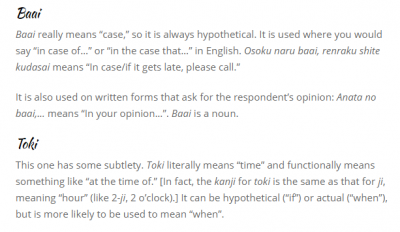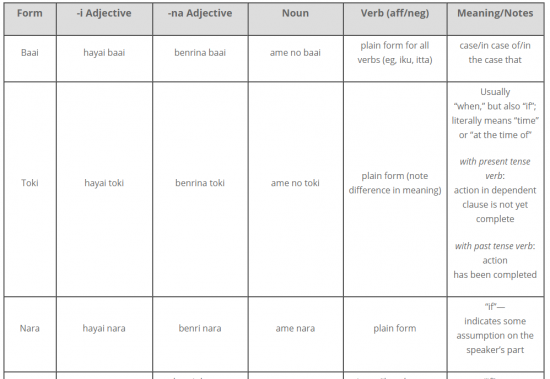If you're the type of person who finds it impossible to wrap your brain around explanations of Japanese grammar, or if you are intrigued by how a difference in basic thought processes could shape quite different grammar structures, you might enjoy the website Japanese for the Western Brain.
The site approaches the Japanese language with commentary coming from the perspective of a western writer and, by outlining some contrasting features of Japanese and English, might offer some valuable help for people trying to understand the complexities of the language.
For example, the writer gives some simple advice on how best to grasp the use of conditional clauses in Japanese such as "とき, ば, たら" and so on.
In English, the words 'if' and 'when' are used in quite a straightforward way in order to express conditionals. However, in Japanese, expressions such as とき, ば and たら are used in different ways, each with its own nuance attached. It's important to take care when choosing which to use in appropriate circumstances.
Here, a selection of expressions such as 場合, とき, なら, -て, たら, もし, -と, ば and so on brought together and looked at individually, with a short explanation pinning down the key points to bear in mind when using each of them.
The site also shows, in a simple chart format, how to connect each expression with the correct verb form, and notes the different nuances for each, making it an extremely convenient resource!
You might well find that this site gives you just the sort of grounding you need to take on board the peculiarities of Japanese grammar. Read an easy-to-understand analysis of the Japanese language from the perspective of a westerner before you take the plunge into conventional textbook-based study, and see if it helps those elusive grammar concepts stick in the mind!
The introduction article for Japanese for the Western Brain can be found here.




